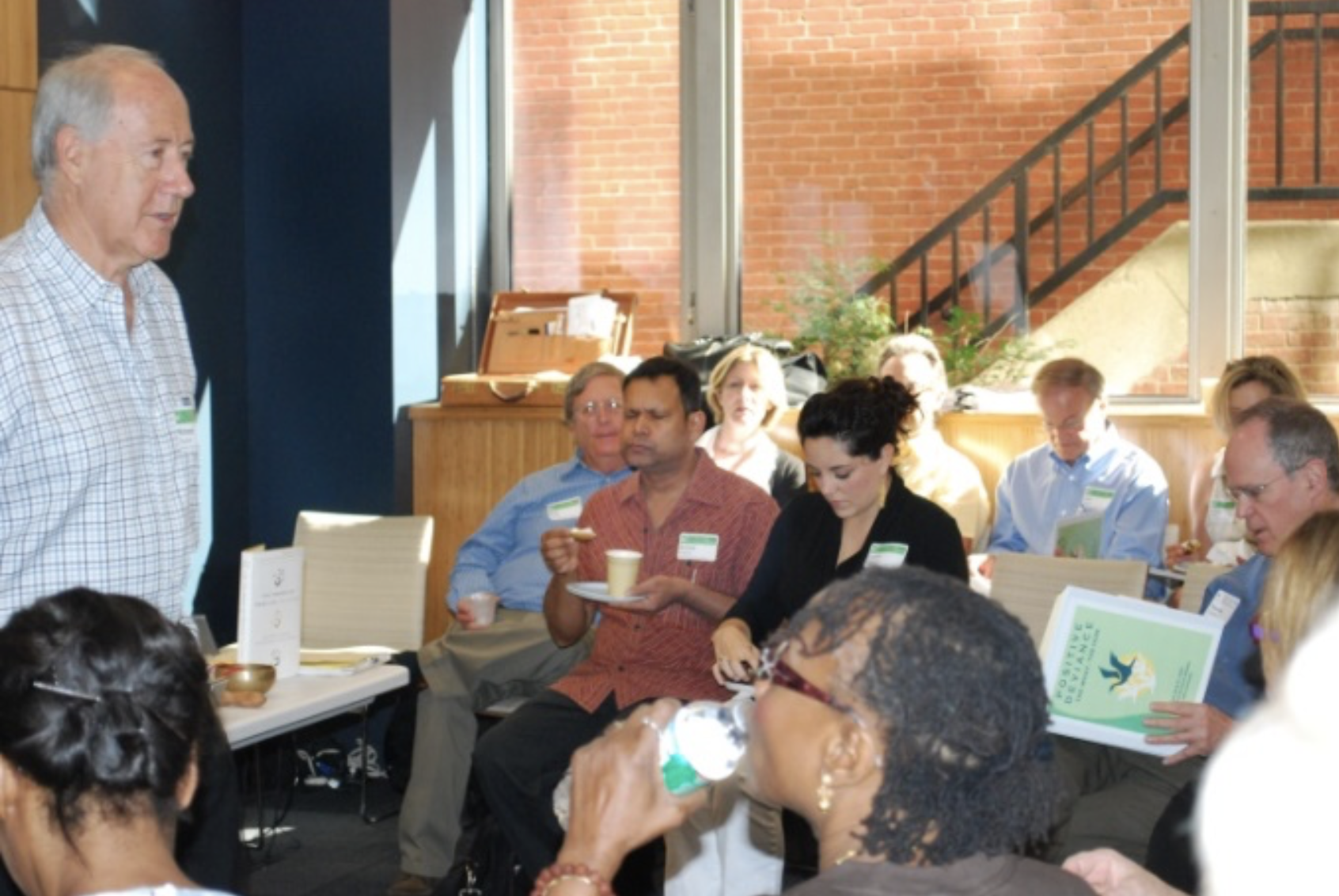Richard Pascale and Jerry Sternin met in the early 60ies in the Philippines and discovered that they had a lot in common besides being born on the same day, in the same hospital in New York City.
During their lifetime friendship, Richard was instrumental in getting Jerry a dean assistant job at the Harvard Business school and most importantly in the late 1980’s negotiated the funding of the PD nutrition Viet Nam project with British Petroleum (BP) for the INGO, Save the Children.
At the time, there was a US economic embargo on Viet Nam and funding had to come from a country other than the US. Richard had been a long time consultant to BP leadership and thanks to his diligence Save the Children was able to secure the funding necessary to get the project started. It should be noted that BP has continued to fund Save the Children project in Viet Nam.
Richard participated in a few of PD projects in both the US and abroad (Argentina and Mexico) and took copious notes which he used in the PD seminal book, The Power of Positive Deviance; How Unlikely Innovators Solve the World’s Toughest Problems in 2010, which he co-authored with Jerry and Monique Sternin.
He championed the use of the PD approach in business via his yearly course at the Oxford Said Business School and at many other venues and platforms. Over the decades he provided his full and steadfast support to the PD Initiative and was instrumental in making the PD approach part of the mainstream behavior and social change approaches.
Here is a comment from one of his fellow PD facilitator, Lars Thuesen:
“I first met Richard and Jerry at Oxford University during my executive master’s studies in 2007. It was a life changing experience and game changer for me. Richard and Jerry taught us and facilitated workshops to inspire us to better understand complexity, adaptive challenges and the practice the Positive Deviance Approach. It was mind blowing, very inspiring and also puzzling, because I realized that I had to change my mind-set and approach to change fundamentally. We began working together to introduce the Positive Deviance Approach in the Danish prisons and a couple of years later I found myself co-teaching with Richard in the Oxford master’s program. It is great to work with Richard and also challenging. In the beginning Richard thought our Prison case was a bit immature and not so suitable to bring into the class room, but after a couple of conversations the program director, Richard and I decided to give it a go. Since then we have been close colleagues and every year we have brought insights, reflections and positive deviance case studies from different parts of the world to life with executive student both at Oxford and elsewhere. Richard is very generous once you get to know him. He named us “ the A-team “ and said that he highly values our work together. I have learned a lot from Richard. He is sharp, to the point, focused and a great advocate of the Positive Deviance Approach. I am certain he is inspiring lots of people to try out and work with the approach.”
He is the author of the now well-known adage in PD parlance:
‘It is easier to act your way into a new way of thinking than think your way into a new way of acting.”
Richard Pascale was born in 1938 and received his MBA from Harvard Business school and was a Baker Fellow and a White House fellow. He was for twenty years on the faculty of the Stanford Business School and contributed articles to the Harvard Business Review.
In the late 1970s, while he was a consultant at McKinsey, he was heavily involved in the evolution of the 7-S model developed by Peters and Waterman.
His work include numerous best sellers books such as The Art of Japanese Management with Anthony Athos, Managing on the Edge (1990) and Surfing the Edge of Chaos (2000). Pascale has acted as an advisor to the White House and as a consultant to many Fortune 500 companies from AT&T to Shell. During 2005, he was advisor to the US Ambassador in Iraq and was in control of the transition of the new ambassador into his post and the management of the largest US mission in the world.
Pascale spends a number of days every year focusing on questioning, and learning from discussions with business leaders.
You can watch Richard talk about PD in this Aspen Institute video in 2015.


